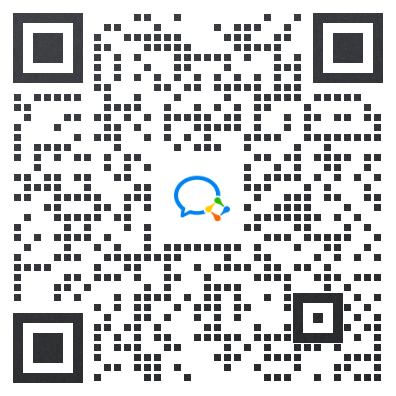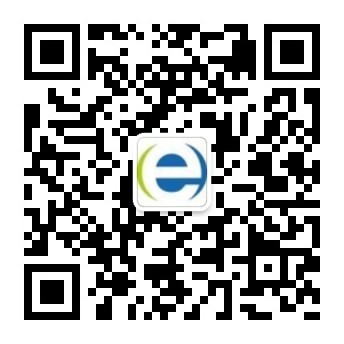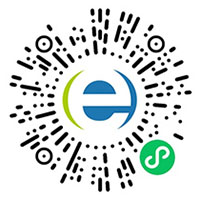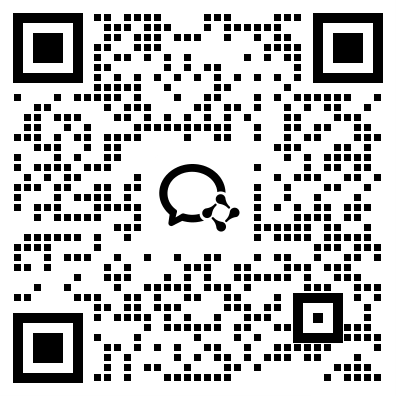2026年考博英语外刊第6期丨The Key to Critical Self-Awareness
摘要:9月是考博英语复习的关键期。外刊阅读是提升阅读速度和理解深度的“黄金钥匙”。本期精选2025年《大西洋月刊》的一篇文章,助力同学们攻克考博英语阅读理解!
本期精选2025年《大西洋月刊》的一篇文章,助力考生们攻克考博英语阅读理解。
杂志简介:
The Atlantic《大西洋月刊》,是美国历史最悠久、最具声望的综合性月刊之一,创刊于1857年。 它是一本涵盖文学、政治、科学、艺术、经济、社会文化等广泛领域的高端综合性期刊。自创刊起,它就以独立、深刻、高质量著称。考博英语阅读理解的文章来源多出自英美主流报刊,而《大西洋月刊》因其包含大量高级词汇、表达和广泛的话题覆盖,成为重要的备考资源之一。
本期内容
The Key to Critical Self-Awareness
一、阅读全文
【1】Know thyself is the most famous maxim of Greek philosophy, carved into stone on the Temple of Apollo at Delphi. Why? you might ask. The greatest philosophers and writers throughout history are more likely to tell you why not, so foundational is the idea of self-knowledge to a meaningful existence. In his tragedy Thyestes, the Stoic philosopher Seneca writes, “Death lies heavily on him / Who, though to all the world well known, / Is stranger to himself alone.” And as Shakespeare asserts in his comedy As You Like It, “The fool doth think he is wise, but the wise man / knows himself to be a fool.”
【2】What exactly does it mean to know yourself? For neuroscientists, the answer is straightforward enough: Self-knowledge is the combination of two forms of information, direct appraisals (your own self-beliefs) and reflected appraisals (your perception of how others view you). The first generally employs the parts of the brain associated with a first-person perspective, such as the posterior cingulate; the second with regions associated with emotion and memory, such as the insula, orbitofrontal, and temporal cortex.
【3】This technical definition of self-knowledge concerns only the mechanisms involved and does not say anything about the quality of the information: In effect, if you think you’re a rooster and believe others see you as one too, that counts as self-knowledge. I strongly suspect that the thinkers at Delphi had a bit more in mind than this; they no doubt meant “Know thyself accurately.” That is a much taller order, requiring a huge quantity of truthful information about your interior states—attitudes, beliefs, emotions, traits, motives—over time, in all three of its phases: present, past, and future. Accurate self-knowledge also means avoiding mistakes and correcting illusions, being completely honest with yourself, possessing a reliable memory, and predicting how you will feel and react in the future.
【4】 By this impossibly exacting standard, you don’t know yourself perfectly, and I don’t know myself either. As a matter of fact, we probably all overestimate our capacity for accurate self-knowledge. Many studies have shown how flawed people’s self-assessments are. Psychological experiments have revealed that ratings of one’s own skill and performance are “moderate to meager” in accuracy and are generally less sound than external evaluations. Similarly, scholars have demonstrated that we can’t even predict our future behavior better than others can predict it for us. Cock-a-doodle-do, you’re not who you think you are.
【5】One reason we know ourselves so poorly is that we’re prone to major cognitive errors about what we see happening in our lives. Researchers have found that humans are vulnerable to gross omissions, to the extent that we miss seeing our problems, mistakes, and opportunities. We exist, you might say, in a fog of meta-ignorance: Not only do we not know ourselves; we don’t know we don’t know ourselves.
【6】 Many things in our lives go unnoticed because we lack language for them and don’t understand them. This is called hypocognition—meaning a deficit of cognition (as opposed to hypercognition). In studies exploring this phenomenon, British participants were more likely to notice cheese than Asian dumplings in their daily lives, while Chinese participants noticed the reverse. A less trivial instance than foodstuffs might involve the way some trauma affects your daily life and who you are, but you are unable to recognize its impact because you have no knowledge about the effects of trauma. (That said, having this knowledge can lead to pitfalls, because learning about trauma can cause a person to incorrectly identify its cause and origin.)
【7】Much of our self-knowledge deficit comes from the willful ignorance—dishonesty, really—that we indulge to protect our self-esteem. For more than a century, psychologists have observed the human tendency to use motivated reasoning to reassure ourselves that our opinions are right, to rationalize bad choices, to ignore information that reflects critically on us, and generally to maintain positive illusions and find ways to avoid facing reality-based negative emotions. So integral to our being are these traits that collectively they have been called our “psychological immune system.” This characteristic rationalizing is almost certainly based in our biology; neuroscientists have shown that people presented with critical evaluations of themselves display signs of stimulus in the brain’s limbic regions associated with threat perception.
【8】 This human capacity to maintain ignorance in the face of potentially negative self-knowledge might make you more comfortable in the short term. But as is true of so much human craving for comfort, it leads to many missed opportunities for greater well-being and success in the long run. Research has shown that more honest self-awareness—of both positive and negative information—improves self-development because you know what to improve. This enables better personal decision making rooted in accurate information, especially when striving toward goals. And experiments in the workplace have demonstrated that good self-awareness enhances job contentment, enthusiasm, and communication.
二、开始做题
1. According to neuroscientists, what constitutes self-knowledge?
A. Only direct appraisals of one’s own abilities.
B. Direct appraisals and reflected appraisals.
C. The ability to predict future behavior accurately.
D. A complete understanding of one’s emotions without external input.
2. Why do the authors suggest that “Know thyself accurately” is a much taller order than simply “Know thyself”?
A. Because accurate self-knowledge is impossible to achieve.
B. Because it requires a large amount of truthful information about your interior states.
C. Because most people are not interested in knowing themselves accurately.
D. Because it involves understanding only one’s present state, not past or future.
3. What is one of the reasons why humans are poor at self-knowledge, according to the article?
A. We lack the ability to reflect on our own behavior.
B. We are prone to major cognitive errors and omissions.
C. We have too much information about ourselves.
D. We are not interested in our own self-development.
4. What is the main idea of the article?
A. The importance of accurate self-knowledge and the challenges in achieving it.
B. The history of the phrase “Know thyself” and its origins in Greek philosophy.
C. The role of neuroscientists in understanding self-knowledge.
D. The benefits of ignoring negative information for improving self-awareness.
答案+解析
1.【答案】B
【考查点】细节事实题。
【解题思路】根据题干关键词neuroscientists和self-knowledge定位到文章第二段,由第二句For neuroscientists, the answer is straightforward enough: Self-knowledge is the combination of two forms of information, direct appraisals (your own self-beliefs) and reflected appraisals (your perception of how others view you).(对于神经科学家来说,答案相当明确:自我认知是两种形式的信息综合而成的,即直接评价【你的自我信念】和反射评价【你对他人如何看待自己的感知】)可知,自我认知是直接评价和反射评价的结合,故选项B正确。选项A只提到了直接评价,忽略了反射评价,故排除;选项C文章并未提及,故排除;选项D与文中提到的反射评价相矛盾,故排除。
2.【答案】B
【考查点】细节事实题。
【解题思路】根据题干关键词Know thyself accurately和a much taller order定位到文章第三段,由第三句That is a much taller order, requiring a huge quantity of truthful information about your interior states—attitudes, beliefs, emotions, traits, motives—over time, in all three of its phases: present, past, and future.(这一要求可高得多,它需要个体掌握海量关于自身内在状态的真实信息——涵盖态度、信念、情绪、性格特质、动机等方方面面,且需跨越当下、过往与未来三个时间维度。)可知,准确的自我认知需要大量关于自身内在状态的真实信息,故选项B正确。选项A在文中并未提及,且过于绝对,故排除;选项C在文中并未提及,故排除;选项D与文中提到的三个时间维度相矛盾,故排除。
3.【答案】B
【考查点】细节事实题。
【解题思路】根据题干关键词reasons 和poor at self-knowledge定位到文章第五段,由第一句One reason we know ourselves so poorly is that we’re prone to major cognitive errors about what we see happening in our lives.(我们之所以如此不了解自己,其中一个原因在于,我们极易在解读自身生活中所发生之事时犯下严重的认知错误。)可知,人类自我认知差的一个原因是我们容易产生严重的认知错误和遗漏,故选项B正确。选项A、D在文中并未提及,故排除;选项C与第三段中提到的准确的自我认知有关,与题目所问的缺乏自我认知相矛盾,故排除。
4.【答案】A
【考查点】主旨大意题。
【解题思路】通读全文,文章首先引用了希腊哲学中的名言Know thyself,并指出准确自我认知的重要性。接着,文章从神经科学的角度解释了自我认知的构成,然后指出了人类在自我认知上的不足和原因,包括认知错误、元无知和故意忽视等。最后,文章强调了准确自我认知对于个人发展和决策的重要性。因此,文章的主旨大意应该是准确自我认知的重要性以及实现它的挑战,故选项A正确。选项B只是文章开头的引入部分,并非主旨,故排除;C选项只是文章中的一部分内容,没有涉及主旨,故排除;由文章第八段第三句Research has shown that more honest self-awareness—of both positive and negative information—improves self-development because you know what to improve.(研究表明,更为坦诚的自我认知——包括正面和负面信息——有助于自我发展,因为你知道自己需要改进什么。)可知,选项D与文章内容不符,故排除。
三、重点词汇+长难句
【全文共22个重点词汇,看到不熟悉的词汇,记得划线哦!】
thyself /ðaɪˈself/ pron. 你自己(古语)
maxim /ˈmæksɪm/ n. 格言;准则
stoic /ˈstəʊɪk/ adj. 斯多葛派的
doth /dʌθ/ v. 动词do的老式第三人称单数形式
appraisal /əˈpreɪz(ə)l/ n. 评估;评价
cortex /ˈkɔːteks/ n. 皮层,(尤指)大脑皮层
Delphi /ˈdelfaɪ/ n. 特尔斐(希腊古都)
interior /ɪnˈtɪəriə(r)/ adj. 内心的,本质的
exacting /ɪɡˈzæktɪŋ/ adj. 严格的;苛求的
overestimate /ˌəʊvərˈestɪmeɪt/ v. 过高估计(能力、影响或价值)
meager /ˈmiːɡə(r)/ adj. 贫乏的;(数量)少的,不足的
sound /saʊnd/ adj. 合理的,可靠的
prone /prəʊn/ adj. 有做……倾向的,易于……的
vulnerable /ˈvʌlnərəbl/ adj.(身体或精神)脆弱的,易受伤的
trivial /ˈtrɪviəl/ adj. 琐碎的,不重要的
trauma /ˈtrɔːmə/ n. 精神创伤,心理创伤
pitfall /ˈpɪtfɔːl/ n. 隐患;陷阱
willful /ˈwɪlf(ə)l/ adj. 有意的;故意的
indulge /ɪnˈdʌldʒ/ v. 纵容;沉溺
reassure /ˌriːəˈʃʊə(r)/ v. 使安心,使消除疑虑
rationalize /ˈræʃ(ə)nəlaɪz/ v. 对…进行合理解释,为…辩解
limbic /ˈlɪmbɪk/ adj. 边的;缘的
扫码进入小程序>>> 博士报名条件查询
| 扫码添加课程顾问>>> 考博英语题型咨询
|
热门:2026年博士招生简章汇总 丨港澳台地区招生丨医学博士英语统一考试大纲
丨港澳台地区招生丨医学博士英语统一考试大纲
资料:2026医学统考冲刺资料包丨2026年考博英语考前预测资料丨2025年考博英语36所真题回忆版
活动:考博上岸学员备考经验分享
延伸阅读
- 2026全国医学博士英语统考准考证打印时间
- 2026全国医学博士英语统考准考证打印流程
- 上海戏剧学院2026年招收攻读博士学位研究生招生简章
- 考博英语全国医学统考真题考情分析
- 桂林医科大学2026年在职医师攻读临床医学博士专业学位人员招生简章
- 研究生上多少年可以考博士

考博英语微信公众号

了解更多考试动态
考博英语备考资料免费领取
去领取

扫一扫,进入微信小程序,各院校历年真题随时随地可刷题,助力考博英语提分。
- 0
- 2
- 7
 专注在线职业教育25年
专注在线职业教育25年








 扫描二维码
扫描二维码
 扫描二维码
扫描二维码








